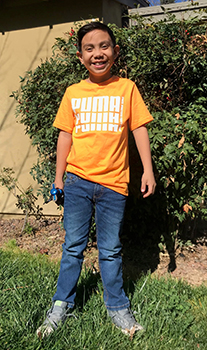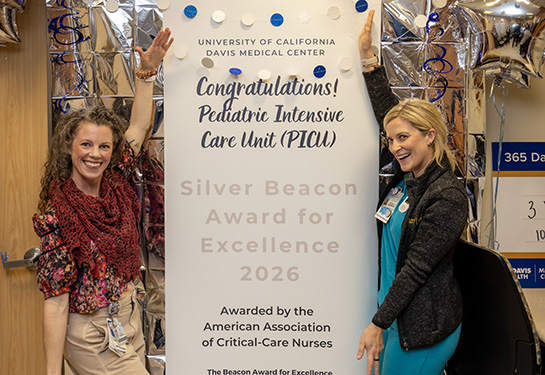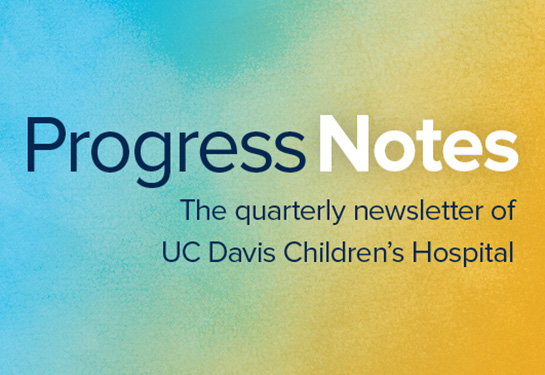UC Davis Children’s Hospital helps local boy with kidney disease hold onto hope
As Justin Ramirez’s chronic kidney disease continues to progress, doctors work tirelessly to keep him alive
Meliza Ramirez was eagerly anticipating the arrival of her second child. The ultrasound was fine. There were no warning signs about what was going to be a lifelong struggle.

When her baby boy, Justin, arrived early at 32 weeks gestation, that was a surprise. Then she got another one: Justin only had one kidney.
“I figured it would be something we had to monitor, but I could not have imagined what we would go through,” Ramirez said.
Although most people born without a kidney or with only one working kidney lead normal, healthy lives, that was not the case for Justin. He required a kidney transplant as a baby. A family member was a match and Justin’s surgery took place at UC Davis Children’s Hospital when he was just a year old.
UC Davis Children’s Hospital has a world-class reputation for kidney transplants in children, ranking #25 in the nation in pediatric nephrology by U.S. News & World Report.
“The surgery went well and we were so relieved,” Ramirez said. “We thought the worst was over.”
The new kidney lasted seven years, but then Justin landed in the hospital with serious lung issues in 2017. He had to be placed in an induced coma, which ultimately led to his body rejecting the transplant.
“They had to take Justin off his anti-rejection drugs so he could fight through his lung issues on his own,” Ramirez said. “From there on, we had to start over and take it day by day. It’s been a rough road.”
The quest for a kidney began again. All the while, Justin’s condition worsened. By March 2018, dialysis became a must, as did constant trips to the pediatric nephrology clinic at the Glassrock Building, spending hours getting treatment and checking on Justin’s condition which has since progressed to Stage 5 chronic kidney disease.
Thanks to the outpatient peritoneal dialysis program, Justin now does dialysis at home for 10 hours each day. UC Davis Children’s Hospital is the only hospital in inland Northern California to offer outpatient peritoneal dialysis for patients under 10 years of age or 44 pounds.
Many people who know Justin’s story have been tested to see if they’re a match. To date, there hasn’t been a suitable donor, but Justin takes it all in stride as he and his mom look forward to his 11th birthday next month.
“Justin’s a fighter and I know with UC Davis Children’s Hospital on our side, he has the best chance,” Ramirez said. “I am so thankful for the care we have received and the people who continue to help us. You all give us the strength to carry on.”
The UC Davis Transplant Team contributes to the 15,000 kidney transplants performed each year in the United States – of which more than 40 percent come from living donors. Often described as "The Gift of Life," living donation gives recipients freedom from dialysis and allows them to enjoy a longer life, full of energy and productivity. Contact the UC Davis Health Transplant Center at (916) 734-2111 or (800) 821-9912 if you are interested in learning more about the living
UC Davis Children's Hospital is the Sacramento region's only nationally ranked, comprehensive hospital providing care for infants, children, adolescents and young adults with primary, subspecialty and critical care. It includes the Central Valley's only pediatric emergency department and level I pediatric trauma center, which offers the highest level of care for its critically ill patients, as well as a level I children’s surgery center. The 129-bed children's hospital includes the state-of-the-art 49-bed neonatal and 24-bed pediatric intensive care and pediatric cardiac intensive care units. For more information, visit children.ucdavis.edu.



